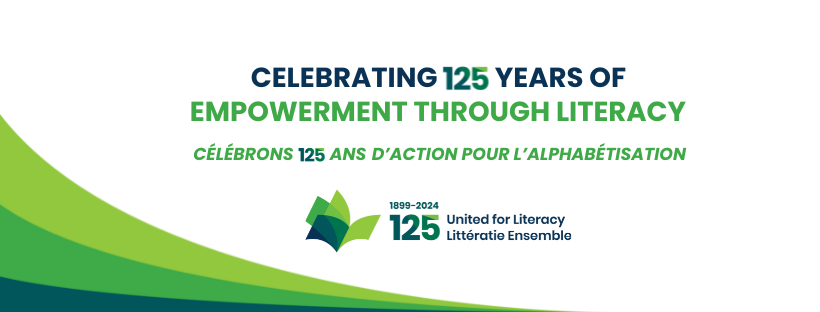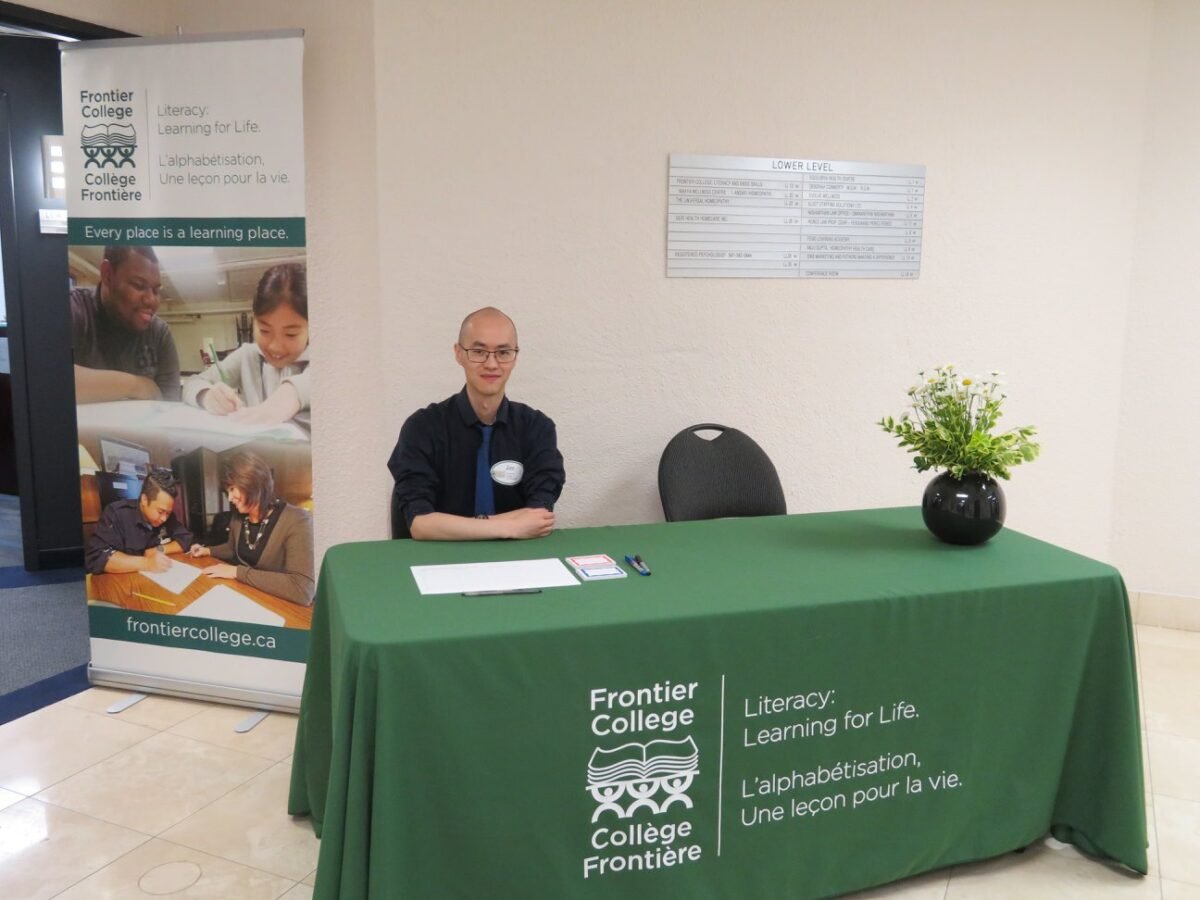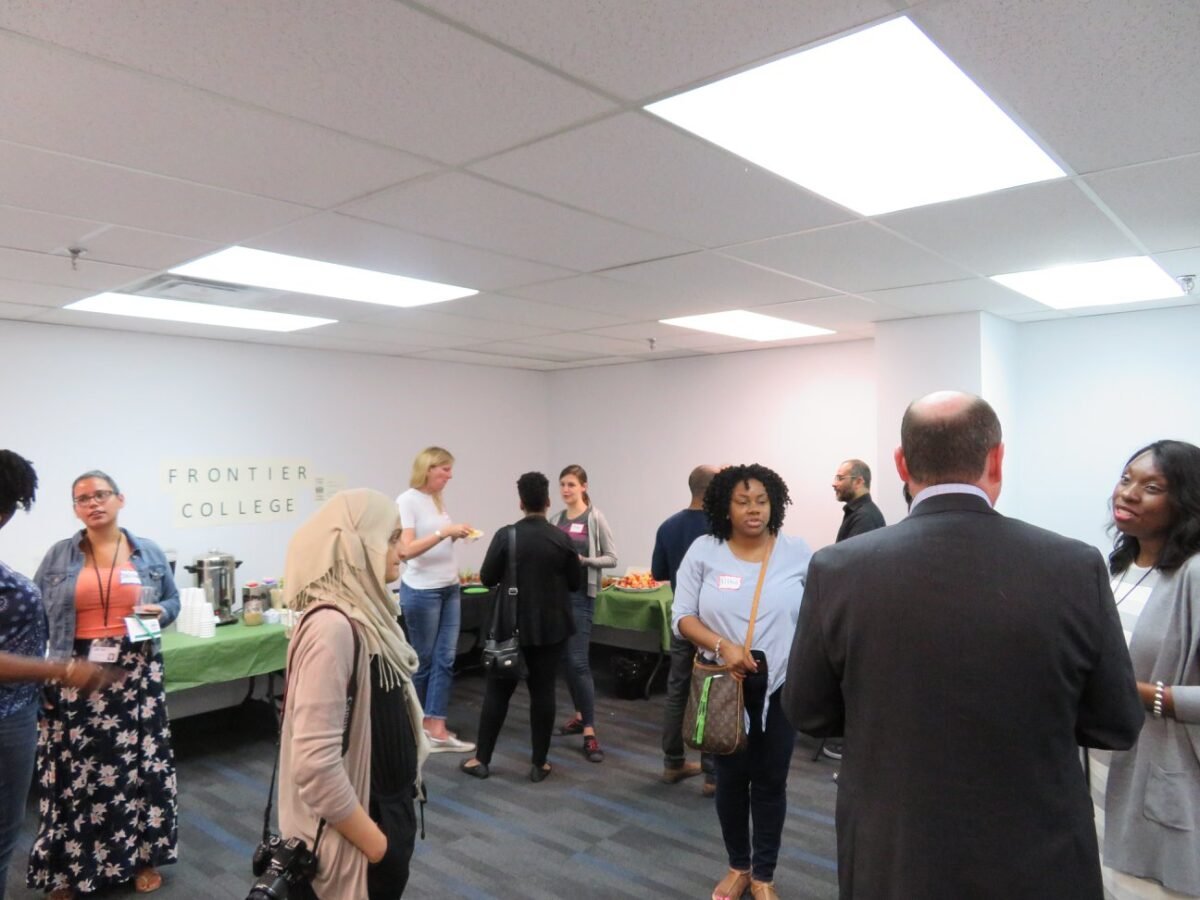- United for Literacy / Littératie Ensemble Place Title
2024 officially marks the 125th anniversary of United for Literacy, formerly Frontier College. United for Literacy has been delivering literacy programs to people in communities across Canada since 1899. We started by hosting reading camps equipped with books and volunteers to teach people in remote locations. Today, we offer a variety of programs all over the country.
Our founder’s approach was “every place is a learning place,” which established how education and basic literacy was taught throughout Canada. Read our brochure to learn more.
History Acknowledgement
We acknowledge that United for Literacy (formerly Frontier College) played a role in promoting non-Indigenous education. This contributed to the colonization of Indigenous peoples and communities.
In the early years of our organization, we played a role in Canada’s physical settlement and economic development. The Labourer-Teacher program supported the education of miners, railway, and lumber camp workers.
We have worked in partnership with many First Nations, Métis, and Inuit communities in the course of our history. We have offered educational supports to individuals and families. We promoted English as the main language of instruction. We did not always take Indigenous language, culture, traditions, and ways of teaching into consideration.
As an education-focused organization, we’re committed to learning from our shared history. In our recent history (from 2005), we progressively started to hire and train members of the communities we partner with. This ensures that the local culture, language, and traditions are the heart of all educational activities offered by United for Literacy. We will move forward in the spirit of reflection, collaboration, reconciliation, and change.
We adopt the United Nations Declaration of Rights of Indigenous Peoples as a plan for reconciliation, including:
Indigenous families and communities keep shared responsibility for their children. This includes the children’s upringing, education, and well-being. This reflects the rights of the child.
Indigenous peoples have the right to form and control their educational systems and schools. This includes use of their own languages. It also includes the community’s cultural methods of teaching and learning.
United for Literacy is working to advance the Truth and Reconciliation Commission of Canada’s Calls to Action.
Literacy touches all aspects of our lives. We must recognize the role literacy plays in creating fair communities and societies. We invite our learners, volunteers, partners, donors, and everyone in Canada to join us as we continue to listen and learn.
Read Our Treasure: The Life Stories of Postville’s Treasured Seniors, a look at a community in Newfoundland and Labrador.
Please sign in to see contact details.




 >
>
Leave a Reply